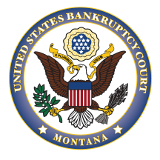You are here
Creditor FAQs
-
How can these people get away without paying me?
The Bankruptcy Code and Rules written by the United States Congress are designed to give a fresh start to the honest debtors who have become unable to timely pay their debts in hopes that they once again become productive members of society and not dependent upon public assistance to live. Unfortunately, this means that creditors sometimes lose their money. This is a policy decision by Congress that the court cannot change. However, there are guidelines as to who may be a debtor and laws relating to possible abuse with strict consequences if any laws are broken. The court functions as a neutral impartial body to rule on disputes that arise in these cases.
-
Do you have a list of properties that are for sale?
No. We suggest that you contact the panel trustee for information regarding liquidation proceedings. A list of auctions, sales, etc. is not made available to the clerk's office or to the court.
-
What is the difference between a Sec. 523 complaint and a Sec. 727 complaint?
A Sec. 523 complaint involves the question of whether a particular debt may be discharged while a Sec. 727 complaint pertains to the debtor's eligibility for a discharge of all debts.
-
What is a discharge?
Generally, by filing a bankruptcy a debtor is seeking a discharge of debts. A discharge means that certain debts become unenforceable against the debtor personally. Creditors whose claims against the debtor are discharged are prohibited from any attempt to collect from the debtor. Timely action may be taken on behalf of a creditor to deem a debt non-dischargeable or that the debtor should not receive any discharge of debts by filing the appropriate complaint (adversary proceeding) in the Court.
-
How do I check on the status of a case?
You can be a regular subscriber to the PACER system. Also, general case information is available through McVCIS (Multi-Court Voice Case Information System) which is an automated data information telephone line. If the information you are seeking is not available through the McVCIS, you may telephone the Court (406) 497-1240 for information.
-
What is PACER?
PACER is an electronic, public-access system that allows you to use a terminal or computer and modem to dial into a specific public information center and directly access official bankruptcy case information. For more information, go to http://pacer.psc.uscourts.gov.
-
Will you fax me some copies of documents that I need?
Because search and copy fees must be prepaid pursuant to 28 USC 1930, documents are not faxed. The method to obtain copies of documents and other Court records on a regular basis is to subscribe to the PACER (Public Access to Court Electronic Records) system. For further information regarding PACER go to: http://pacer.psc.uscourts.gov.
-
May I speak directly to the Judge?
Federal Law prohibits any ex parte (without hearing) contact with the court in order to prevent the appearance of any improprieties or allegations of preferential treatment and to uphold the integrity of the Court.
-
When will I know if an order has been signed?
The clerk’s staff promptly sends out copies of signed orders upon their entry to the appropriate parties. Motions with negative notice language are not considered by the court until the objection time has run.
-
May I fax you a motion?
No. The Court does not accept fax filings of any kind.
